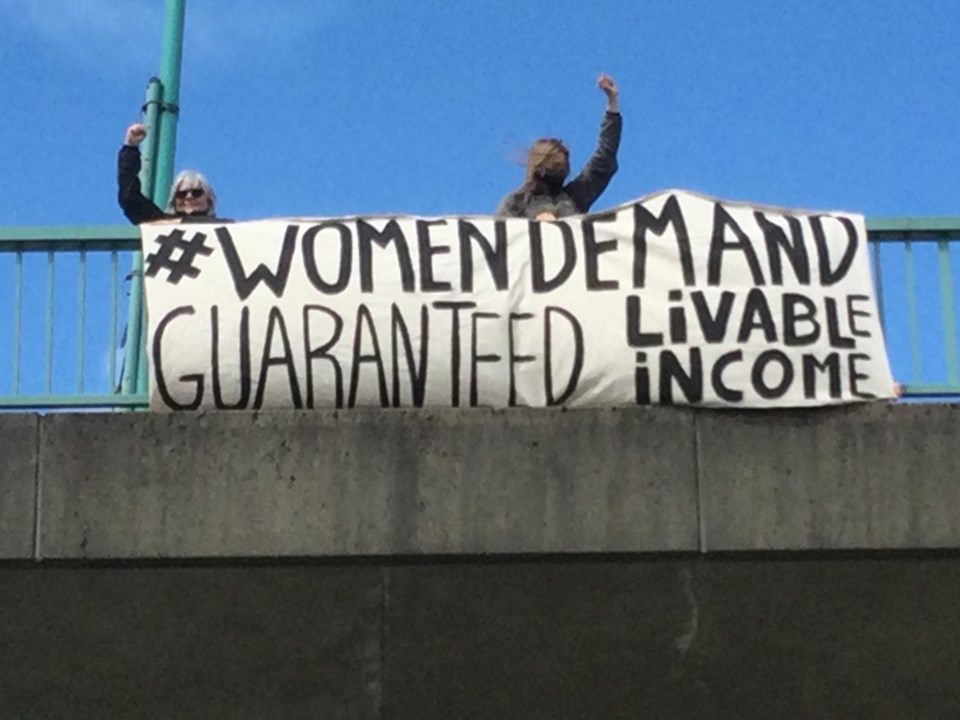On May Day (May 1st), women all across British Columbia took action by unveiling banners that read “#WomenDemand Guaranteed Livable Income.” Coordinated by BC Women’s Alliance, the banners promote a government-provided income that is “delivered individually and unconditionally to all and set at a rate that, along with robust public programs, enables all in BC and Canada to live a dignified and autonomous life.”
This call for the implementation of a Guaranteed Livable action comes in the wake of the Province’s decision to permanently raise income assistance and disability assistance by $175 per month as of April, 2021.
While the pandemic has not abated, the COVID-19 crisis supplement of $300 in recognition of the additional hardship given to individuals receiving income and disability assistance has ended. Although the Province is touting the increase as “the largest-ever permanent increase to income assistance,” welfare rates remain drastically substandard and keep recipients impoverished. For single women on Income Assistance, they will receive $935 per month and for single mothers with one child, they will receive just $1,270.58.
During a recent consultation for our submission to the federal government’s National Action Plan to End Gender-Based Violence, women who had lived in our transition house spoke bluntly of the immense barrier that poverty creates in getting free from men’s violence.
What women told us echoed what we’ve long known, that poverty, and the threat of it, forces women to tolerate male violence.
One woman told us: “Poverty gives men so much power. I know so many women who have had to go back to their abuser because of that. If they can't work, or they have a disability it just becomes a really big problem for you, because you can't afford it.”
Women spoke of impossible budgets that mean having to choose between basic necessities, “I shouldn’t have to choose between paying the utility bill or buying my daughter a pair of shoes” and “When you are on welfare, after you buy groceries, there's basically nothing left. You just have to survive and not really be able to live. It's just survival.”
For so many women, leaving a violent male partner so often means uprooting her and her children’s lives. Between the exorbitant rents of market housing and the paltry assistance rates, as one woman put it, “Market housing is completely out of the realm of possibility because we can't afford it.”
Another woman stated, “I was just on income assistance and it's literally you cannot find somewhere to live on that amount, even on disability, you can't, you must rely on getting into some subsidized housing or sleep in the car.”
For women who hold paid jobs, the pandemic has immensely impacted their financial stability. As reported in Unmasking Gender Inequity: women lost 60% more jobs than men and were often employed in industries that were most affected by public health measures including retail, education, health care and food services. Additionally, racialized and immigrant women who are often overrepresented in such frontline jobs that carry increased risk of exposure. For many working mothers, a lack of childcare and disruption to in-person education meant having to give up work to care for their children.
By refusing to adequately fund a social safety net, British Columbia is failing women and their children. As governments talk of economic recovery from the COVID-19 pandemic, we insist on women’s entitlement to better than a return to "normal". For this, we demand a Guaranteed Livable Income.



